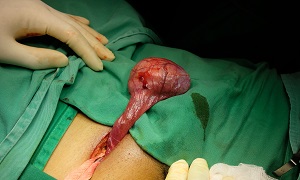Best Testicular Cancer treatment Doctors in India
Best Testicular Cancer Treatment Hospitals in India
Hospital Highlights:
- Apollo Hospitals is a private healthcare group in India, with its headquarters based in Chennai. Established in 1983 by Dr. Prathap C. Reddy, the group offers a wide range of medical treatments and services across various specialties.
- It is renowned for emphasizing innovation and utilizing cutting-edge medical technologies into patient treatment.
- Known as India’s first corporate hospital, Apollo Hospitals is often credited for pioneering the private healthcare revolution in the country.
- With clinics and hospitals located all throughout India, Apollo Hospitals is a nationwide healthcare organization. Its presence can also be found in foreign countries.
- Preventive health examinations, medical and surgical treatment, and diagnostic centres are just a few of the services that the Apollo group provides.
- The group has several centres of expertise, including Cardiac Sciences, Neurosciences, Orthopedics, Emergency Care, Cancer Care, and Organ Transplantation.
- City: Chennai, India
Hospital Highlights:
- RIMC is a multi-specialty hospital in a sprawling area of 36 acres located in Chromepet, Chennai, Tamil Nadu, India.
- The facility has 450 beds including 130 critical care beds, 9 operating rooms, modern reference laboratories and radiology services, and is conveniently located near road, rail and air transportation.
- RIMC is led and managed by world-renowned physicians committed to healthcare.
- RIMC offers the broadest range of clinical care, education, and research. The hospital offers state-of-the-art technology and modern treatment facilities designed to provide health care at an affordable cost.
- Rela Institute is driven by patient needs, comfort and confidence.
- City: New Delhi, India
Hospital Highlights:
- Fortis Hospital in Shalimar Bagh is a multi-super specialty hospital that strives to provide world-class patient care by leaving no stone unturned.
- Fortis, Shalimar Bagh, with 262 beds and a 7.34-acre footprint, provides the best level of medical care through its team of doctors, nurses, technicians, and management professionals.
- City: Bengaluru, India
Hospital Highlights:
- Established in 2007, the Apollo Hospitals Bangalore is a 300-bed multispecialty hospital situated in Bannerghatta Road, Bangalore.
- Equipped with the state-of-the-art technology, it is a leading hospital dedicated to providing healthcare needs to patients with compassion and expertise.
- It is the first hospital to have completed the highest number of Robot Assisted Heart Surgeries in India.
- Over the years, it has successfully conducted some of the rarest medical procedures such as spinal angiolipoma excision, autologous chondrocyte implantations, and tibial tuberosity shift with MPSL reconstruction.
- The Apollo Hospitals Bangalore has the reputation of performing the greatest series of airway stents in the country.
- Additionally, the hospital is known for providing comprehensive treatment in specialties such as gastroenterology, urology, gynecology, oncology, colorectal surgery, etc.
- The “The Minimal Access Surgery Centre” (MASC), one of Apollo Hospitals, Bangalore’s premier Centres of Excellence, is devoted to the use of minimally invasive surgical procedures.
- In 2013, THE WEEK-A C Nielsen, Best Hospital Survey ranked Apollo Hospitals Bangalore as the 2nd best multi-speciality hospital in Bangalore.
- City: Mumbai, India
Hospital Highlights:
- Gleneagles Global Hospital The 450-bed facility comprises of 17-stories, housing state-of-the-art infrastructure, and advanced medical care facilities.
- The hospital offers end-to-end clinical, surgical, and diagnostic services. It is equipped with a team of eminent medical professionals aided by qualified nurses and medical staff
- The Hospital offers advanced Endoscopic procedures, Hepatobiliary and Liver Surgeries, Surgical and Medical Gastroenterology, Bariatric Surgery, and Robotic surgery.
- The hospital is a center of excellence for Orthopedics, Joint Replacement, Knee Replacement, and Hip Replacement surgery.
- City: Hyderabad, India
Hospital Highlights:
- CARE Hospitals were established in the year 2000, by CARE Group.
- The multispecialty hospital has 435 beds, including 120 critical care beds, with an annual inflow of 180000 outpatients and 16,000 in-patients.
- The hospital provides specialty medical services in Cardiology, Cardiothoracic Surgery, Pediatric Cardiology, Pediatric Cardiothoracic Surgery, Neurology, Neurosurgery, Nephrology, and Urology.
- The hospital has the first dual source, 128 slice CT scanner (for high precision cardiac imaging) – the first of its kind in south India.
- The hospital offers a wide range of accommodation facilities for the convenience of its varied patient base, ranging from general wards to super deluxe rooms.
- City: Mumbai, India
Hospital Highlights:
- Fortis Hospital in Mulund is a 315-bed multi-speciality tertiary care hospital with five JCI accreditations that offers a wide variety of diagnostic and treatment services. The Fortis Hospital in Mulund delivers patient-centred treatment with cutting-edge technology, highly skilled and experienced surgeons, and paramedical staff.
- This institution houses Maharashtra’s largest multi-organ transplant centre. It is also the first heart transplant centre in western India to conduct 100 or more consecutive heart transplants in under four years. It is the only hospital in the city to have multi-organ transplants and has handled the youngest patient for angioplasty. Fortis Hospital Mulund now boasts the first advanced surgical robot in central Mumbai.
- Cardiology and heart surgery, urology, nephrology, neurosciences, orthopaedics, digestive care, emergency and critical care, and maternity care are among the services provided by the hospital.
- City: New Delhi, India
Hospital Highlights:
- Manipal Hospitals, Dwarka, is a super-specialty hospital in Dwarka, New Delhi, which is a part of Manipal Hospitals Group.
- The hospital aims to provide the best treatment on par with international standards at a fraction of the cost.
- Equipped with 380 beds, the hospital is also one of the new age hospitals which are equipped fully with state-of-the-art infrastructure, cutting-edge technology as well as the latest and advanced clinical practices. The hospital also has 13 modular Operation theatres with 118 beds which are solely meant for critical care.
- The hospital comprises internationally acclaimed doctors and highly professional and experienced hospital and medical staff who are able to provide preventive, therapeutic, and diagnostic services all under one roof.
- City: Chennai, India
Hospital Highlights:
- Located in Chennai, India, MGM Healthcare is a top multispecialty hospital that provides all medical services under one roof.
- Since its founding in 2019, MGM Healthcare has quickly become a leading national referral centre, creating several innovative flagship initiatives.
- MGM Healthcare combines next-generation medical and digital technologies to provide better patient results.
- With 12 centres of excellence, more than 400 inpatient beds, 100 intensive care unit beds, and 24/7 emergency care, MGM Healthcare leaves no chance in redefining the patient experience in Chennai.
- MGM Healthcare boasts 250+ expert doctors across 30+ departments, including Cardiology, Pulmonology, Neurology, Obstetrics & Gynaecology, and more.
- They house 12 specialized Centres of Excellence, including Neurosciences, Orthopaedics, and Multi-Organ Transplantation.
- Their team of doctors, nurses, and paramedics works together to give every patient individualized treatment.
Hospital Highlights:
- Lilavati Hospital & Research Centre is India’s premier multi-speciality tertiary care hospital and has been recognised as a global medical excellence centre.
- Lilavati Hospital & Research Centre has built an unrivalled level of trust with its patients over the years, thanks to a solid foundation that comprises cutting-edge facilities, the best medical competence, research, education, and charity endeavours.
- The hospital is quite proud of the fact that it now serves patients from all kinds of backgrounds, not just from the United States but from all around the world.
- The hospital has a total of 323 beds, one of the largest Intensive Care Units (ICUs), 12 Operation Theatres with modern amenities, over 300 consultants, and almost 1,800 personnel.
Testicular Cancer
Cancer occurs when the cells grow abnormally and also invade nearby tissues and eventually spreading to other organs in the body through the bloodstream or the lymph nodes.
Testicular Cancer is the cancer of the testicles (testes) that are located inside the scrotum. The main function of the testicles is the production of male sex hormone (testosterone) & sperm production. Testicular cancer may attack one or both testicles and if untreated, may also spread to other parts of the body.
Testicular Cancer causes
- Family history of testicular cancer.
- An undescended testicle (testicle has not moved into the scrotum).
- Age 20-34 years, however it can occur at any age.
- HIV/AIDS
- Men with fertility problems have an increased risk of testicular cancer.
- Men with inguinal hernia are at greater risk of developing testicular cancer.
- Taller men have an increased risk of testicular cancer.
Signs & symptoms of Testicular Cancer
- A lump which is painless can be felt in the testicle.
- Swelling of the testicle.
- Swollen lymph nodes.
- Fatigue
- Weight loss
- A dull pain in the testicle, scrotum or groin.
- Heavy or feeling as there is something in the scrotum.
Types of Testicular Cancer
- The testicles are made up of many types of cells and each of these cells can give origin to a variety of cancer in the testicles. It is important to understand the type of cancer for an effective treatment strategy, because the treatment can vary by the type of cancer in the testicles.
- Germ Cell Tumors (GCTs)- Germ Cells are the cells that produce the sperm. More than 90% of testicular cancers originate in the germ cells. There are two main types of GCTs, viz. Seminomas and Non-seminomas Germ Cell Tumor (NSGCT). Both of them can occur at the same rate and men can have either one or both
- Seminoma Tumors- Seminoma Tumors are generally less aggressive than non seminomas. Although they can happen at all age groups, but elderly men are more likely to have seminoma.
- Non-seminoma- Non-seminoma Germ Cell Tumors are the more aggressive types. They generally happen occur in younger men. They grow and spread rapidly and hence, need immediate intervention. NSGCTs have variety of sub-types such as; Choriocarcinoma, Embryonal carcinoma, Teratoma & Yolk Sac tumor
Stages of Testicular Cancer
- Stage 1: Cancer is confined to the testicles.
- Stage 2: Cancer has spread to the lymph nodes in the testicle
- Stage 3: Cancer has spread beyond the lymph nodes in the testicle & it may be present in parts of the body that are far away from the testicles like the lungs, liver, kidney and brain.
Diagnosis of Testicular Cancer
Physical examination
Medical History of the patient
Blood test
CT scan
CT Scan takes a series of X-ray images of the abdomen, chest and pelvis to look for signs that cancer has spread.
Treatment options for Testicular Cancer
The treatment of Testicular Cancer depends on the stage and grade of cancer. For all stages and types of cancers, surgery is commonly needed. However, other interventions such as Chemotherapy and Radiation Therapy are generally needed for more advanced stage and more aggressive testicular cancers, typically, Non-Germ Cell Testicular Cancers. Following are the treatment options for Testicular Cancer-
Surgery
The Surgical Options for the treatment of testicular cancer includes:
Radical inguinal orchiectomy
Radical inguinal orchiectomy is is the primary intervention for all types and grades of testicular cancer. In this surgery, the surgeon makes an incision in the groin & extracts the entire testicle through the opening. The patient can have the option of inserting a prosthetic saline-filled testicle.
Retroperitoneal lymph node dissection
For some patients, surgery may be the only intervention needed. After surgery, oncologist will recommend periodic follow-ups and repeat of blood tests and CT scans to check for any new development.
Other Interventions:
However, patients with high grade testicular cancers and advanced stage cancers will need to undergo the following interventions to kill cancer cells and prevent further metastasis.
Radiation Therapy

Radiation Therapy is a kind of cancer treatment that uses high doses of radiation beams to kill cancer cells to shrink the tumors. Radiation kills the cancer cells by destroying the DNA. Cancer cells with damaged DNA fail to multiply and die. They are then removed by the body’s mechanism.
Chemotherapy
Chemotherapy is the use of anti-cancer drug that helps to slow or stop the growth of rapidly dividing cells that cause cancer. It prevents the growth of rapidly dividing cells by killing the dividing cells.
Despite its side effects, chemo is still the most widely used cancer treatment option. Unlike radiation and surgery which treats cancer cells at particular locations, chemotherapy drugs can kill cancer cells that have metastated (spread) to different organs in the body.
















